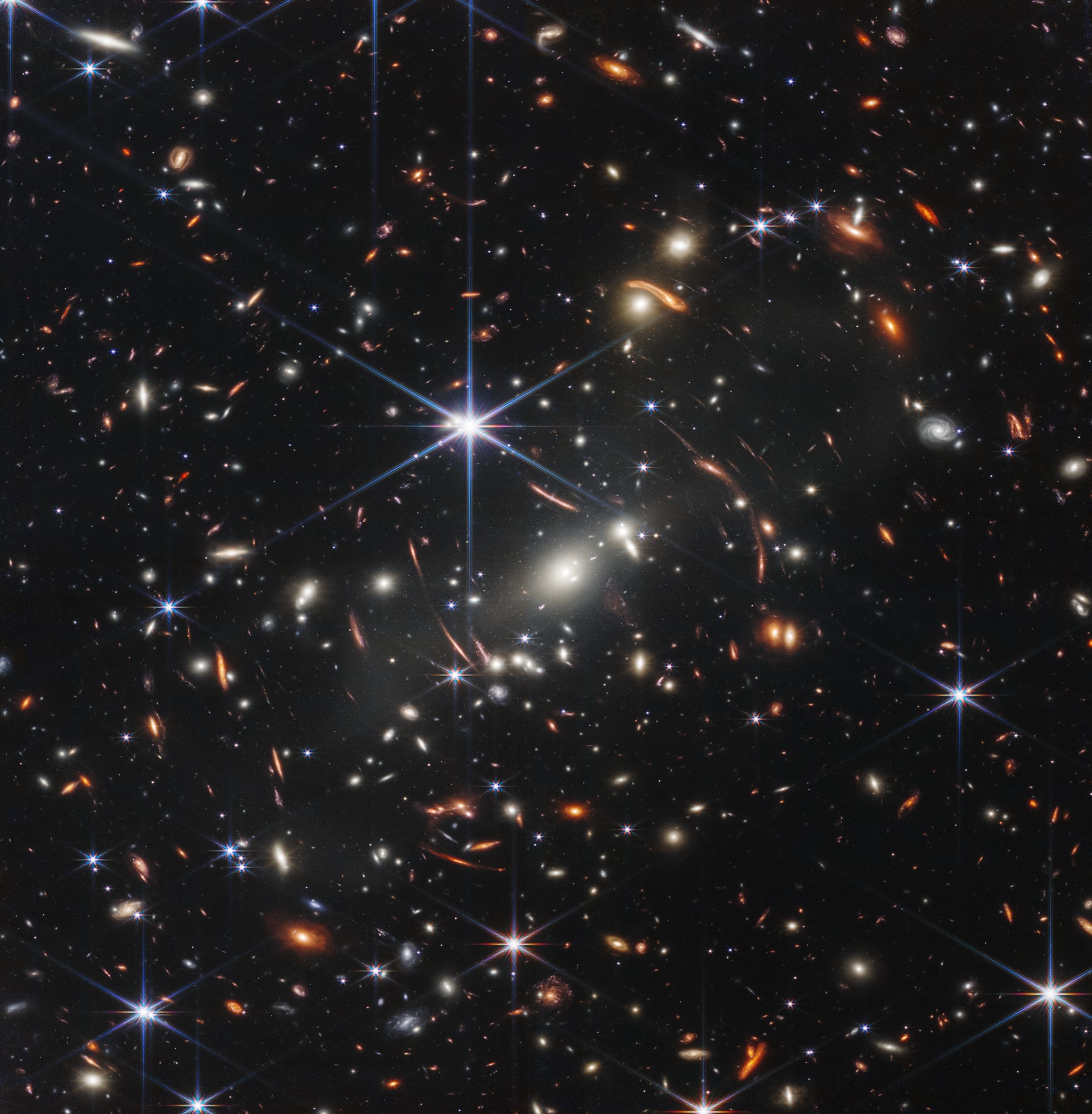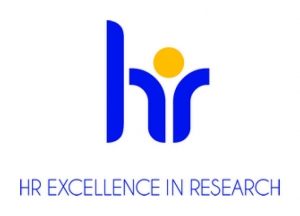
07
May
2025
Postdoc | BP4-240
Termin zbierania ofert: 09-06-2025
The National Centre for Nuclear Research opens the competition for the position of
Postdoc
nr ref.: BP4_240
Localization: Pasteura 7, 02-093 Warsaw
The post-doc position is offered as part of a project entitled “Barely visible: low surface brightness galaxies in the LSST era” and funded by a MAESTO grant from the National Science Centre led by the prof. Agnieszka Pollo (agnieszka.pollo@ncbj.gov.pl). The position is for a fixed term of two years, with the possibility of an extension for a further year depending on the candidate's performance (2+1). The successful candidate will join a team of scientists studying Low Surface Brightness Galaxies (LSBGs) within the Rubin Observatory Legacy Survey of Space and Time (LSST) collaboration with access to early data.
The project offers some flexibility depending on the candidate’s previous experience and scientific interests, but is expected to focus mainly on the topic related to the extragalactic astronomy, in particular the analysis of observations of low surface brightness galaxies. The main objective will be to study the relationships between LSBGs and the large-scale structure of the Universe, with the aim of understanding how the LSBGs are connected to the underlying dark matter field. Different approaches can be used: clustering analysis (correlation functions, cross-correlations, marked statistics), halo occupation distribution models, local density measurements or machine learning methods. The candidate may also choose to work on the theoretical interpretation of the results in the context of different cosmological and dark matter models. The results of this research will provide important insights into the nature of very faint galaxies and their role in galaxy formation and evolution scenarios.
The successful candidate will join an international team of scientists with expertise in LSBGs, galaxy morphology, SED fitting, machine learning, and galaxy clustering and will have a unique opportunity to acquire expertise in all these aspects. Additionally a rich travel budget will allow the PhD candidate to participate in international conferences and workshops, as well as short international research exchanges.
The Astrophysics Division (BP4) of the Fundamental Research Department of the National Centre for Nuclear Research (NCBJ) employs 19 people at the level of post-doc, assistant professor and professor (including 8 foreigners) and 13 PhD students (of various nationalities).
We carry out research in astrophysics and astronomy, in particular their observational aspects. Our main areas of interest are cosmology (including the microwave background radiation, large-scale structure of the Universe, dark matter and gravitational lensing), gravitational waves (multi-messenger astronomy), galaxy properties (formation and evolution of galaxies, active galactic nuclei, quasars) and the interstellar medium (star formation, neutron stars and white dwarfs). For more information please visit our website - https://www.ncbj.gov.pl/en/astrophysics-division – which contains a comprehensive list of projects we are involved in, a full list of publications and a list of staff and students.
Description of tasks:
- Work as part of a research team under the guidance of the project manager and/or other experienced researchers working on tasks related to the implementation of the grant.
- Analysis of observational data, interpretation of results, preparation of publications and conference presentations on the results of the project and promotion of the research results.
- Participation in the scientific life of the NCBJ Department of Astrophysics - participation in meetings, seminars, organisation of workshops, conferences, popular science events.
- Supervision of the scientific work of the PhD student(s) and/or trainees employed within the project.
- Scientific work related to the study of the clustering properties of galaxies, the relationship between stellar mass and dark matter halo mass of a population of low surface brightness galaxies and the study of the dependence of the properties of these galaxies on the local environment.
- Active participation in the Legacy Survey of Space and Time (LSST) scientific collaboration.
Requirements for the candidate:
- Ph.D. in physics, astrophysics, astroinformatics or equivalent (obtained no earlier than in 2017 and no later than fall 2024),
- Documented research experience (publications, conference talks, etc.) in the field of observational astrophysics physics
- Ability to communicate effectively in English, both verbally and in writing.
- General computer skills and the ability to quickly learn and master computer programs, databases, and scientific applications.
- Proficiency in at least one programming language (Python preferred).
Additional assets:
- Experience in astronomical data analysis.
- Previous research experience in topics such as galaxy properties and evolution, galaxy clustering and/or large-scale structure.
- Expertise in statistical methods of data analysis, in particular methods used to study galaxy clustering.
- Experience in the studied of low surface brightness galaxies.
We offer:
- participation in large international science collaborations, in particular the LSST
- employment in one of the largest research Institute in Poland
- good learning environment. Support of an experienced team
- external and internal trainings in hard and soft skills as well as participation in conferences
- a chance to make ones’ own mark by participation in the creation of a interesting and ambitious projects
- work in Polish and international networks with research institutes and industrial companies
Required documents:
- Curriculum Vitae
- a research statement
- full publication list
- a scan/ copy of degree diploma
- the applicant should arrange for at minimum two letters of recommendation to be sent directly to magdalena.jedrkiewicz@ncbj.gov.pl; the subject of e-mails should be “adiunkt MAESTRO 2” and a name and surname of the candidate, the same as given by the candidate when submitting other documents
Contact: magdalena.jedrkiewicz@ncbj.gov.pl
Applications in electronic form should be submitted in English to: magdalena.jedrkiewicz@ncbj.gov.pl - Applications in electronic form should be submitted in English to: magdalena.jedrkiewicz@ncbj.gov.pl- The subject of application e-mails should be "adiunkt MAESTRO 2" and the name and surname of the applicant.
Starting date of the contract: 01|07|2025 (flexible)
As an attachment to your application please sign and enclose the following declarations:
I agree for my personal data included in the application documents to be processed by National Centre for Nuclear Research with its registered office in Otwock, 7 Andrzej Sołtan Street, 05-420 Otwock, for a period of 12 months from their submission, in order to carry out future recruitment processes.
At NCBJ there is the internal procedure for the report of breaches of law. Anyone interested in its content can access it at any time on the website: https://www.ncbj.gov.pl/sites/default/files/prasa/INTERNAL%20NOTIFICATION%20PROCEDURE.pdf
Information in accordance with Article 13 RODO on the processing of personal data:
- The Personal Data Controller of your personal data is the National Centre for Nuclear Research (hereinafter referred to as Controller or NCBJ) with its registered office in Otwock, 7 Andrzej Sołtan Street, 05-400 Otwock.
- Your personal data will be processed for recruitment purposes on the basis of applicable law, including the Labour Code. Data not required by law, provided by you in your documents, will be processed on the basis of your consent. Your consent is given by the transfer of this data.
- The full content of the information clause of Article 13 RODO is available at https://www.ncbj.gov.pl/en/information-clause-personal-data-processing
The National Centre for Nuclear Research is awarded by “HR Excellence in Research”. Recruitment is based on OTM-R system (Open, Transparent and Merit-based recruitment practices in Research Performing Organisations).





